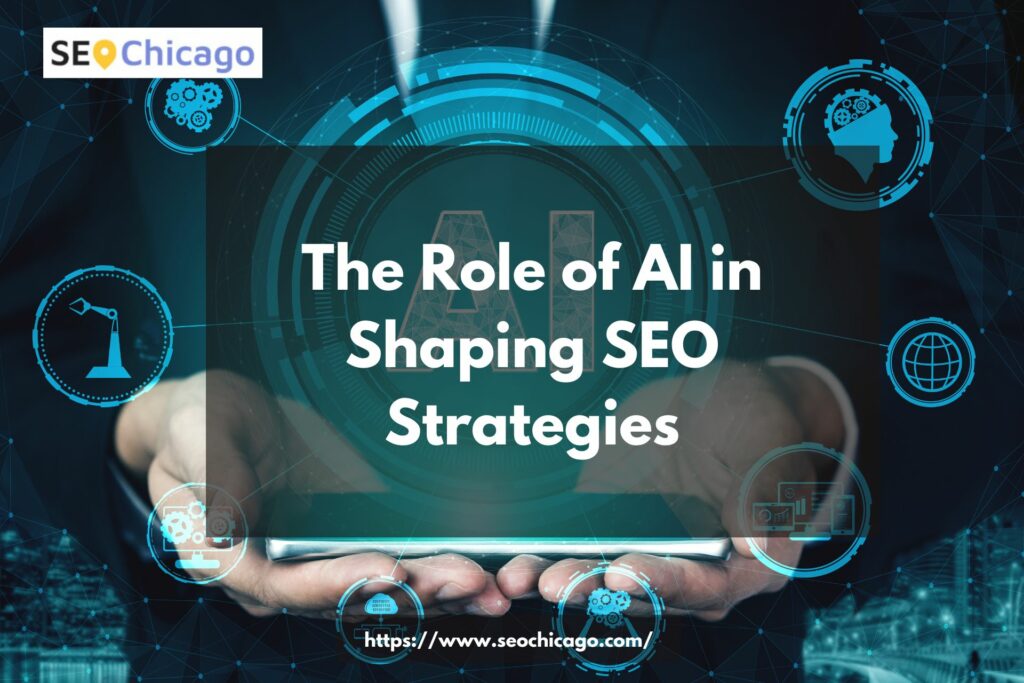In the ever-evolving landscape of digital marketing, the intersection of artificial intelligence (AI) and search engine optimization (SEO) has become increasingly prominent. As businesses strive to enhance their online visibility and connect with their target audiences, AI has emerged as a powerful ally in the pursuit of effective SEO strategies. In this comprehensive guide, we will explore how AI is revolutionizing the world of SEO and reshaping the way businesses approach their online presence.
Understanding the SEO Landscape
Before delving into the role of AI in shaping SEO strategies, it’s essential to have a clear understanding of the current SEO landscape. SEO, in its traditional form, involves optimizing websites to rank higher in search engine results pages (SERPs). This process includes various techniques such as keyword research, on-page optimization, link building, and content creation.
The Evolution of SEO
Over the years, SEO has undergone significant transformations. Search engines like Google have become more sophisticated, continually updating their algorithms to provide users with the most relevant and high-quality results. This evolution has necessitated a more dynamic and adaptable approach to SEO.
The Challenges of Traditional SEO
Traditional SEO methods often struggle to keep pace with the ever-changing search algorithms. Keyword stuffing and low-quality backlinks are no longer effective strategies and can even lead to penalties. This is where AI steps in to offer innovative solutions.
AI-Powered SEO Tools
AI has brought about a new era of SEO, offering advanced tools and techniques that go beyond what humans can achieve manually. Let’s explore some of the key AI-powered SEO tools that are transforming the industry.
Natural Language Processing (NLP)
NLP, a subset of AI, has revolutionized content creation and optimization. AI-driven NLP tools can analyze vast amounts of data to determine user intent, helping content creators tailor their material to match what users are searching for.
Rank Tracking and Predictive Analytics
AI-driven rank tracking tools provide real-time insights into SERP rankings. Moreover, predictive analytics algorithms can forecast future SEO trends, allowing businesses to stay ahead of the competition.
Chatbots and Virtual Assistants
Chatbots and virtual assistants powered by AI can enhance user experiences on websites. They can provide instant responses to queries, guide visitors through the site, and even assist with product recommendations.
AI-Generated Content
One of the most significant contributions of AI to SEO is the generation of high-quality, relevant content at scale. Content marketing is a crucial component of SEO, and AI has made it more efficient and effective.
Automated Content Creation
AI-powered content generators can create blog posts, articles, product descriptions, and more, saving time and resources for businesses. These tools ensure that the content is not only well-written but also optimized for SEO.
Content Personalization
AI analyzes user behavior and preferences to deliver personalized content recommendations. This enhances user engagement and increases the chances of conversion.
User Experience and SEO
AI plays a pivotal role in improving user experiences on websites, which, in turn, positively impacts SEO.
Website Speed Optimization
AI algorithms can optimize website loading times by compressing images, prioritizing content, and minimizing unnecessary scripts. This leads to lower bounce rates and higher rankings.
Enhanced Mobile-Friendly Design
AI-driven design tools ensure that websites are responsive and user-friendly on various devices. As mobile searches continue to rise, having a mobile-friendly website is essential for SEO success.
The Future of AI in SEO
The evolution of AI in SEO is ongoing, and its future possibilities are limitless. From voice search optimization to AI-driven content audits, the synergy between AI and SEO will continue to shape the digital marketing landscape.
Voice Search Optimization
With the increasing popularity of voice-activated devices, optimizing for voice search is becoming crucial. AI can help businesses tailor their content to match voice search queries effectively.
AI-Driven SEO Audits
AI-powered SEO audits can identify areas of improvement with pinpoint accuracy. From technical SEO issues to content gaps, these audits provide actionable insights for SEO professionals.
Conclusion
In conclusion, the role of AI in shaping SEO strategies cannot be overstated. AI-powered tools and techniques have revolutionized content creation, user experience, and overall SEO effectiveness. Embracing AI in your digital marketing efforts is no longer an option but a necessity to stay competitive in the online landscape.
FAQs
1. How does AI impact keyword research for SEO?
AI streamlines keyword research by analyzing user intent and suggesting relevant keywords with high search volume and low competition.
2. Can AI-generated content be as effective as human-written content?
Yes, AI-generated content can be highly effective when it comes to providing valuable information and optimizing for SEO. However, human input is still essential for maintaining a personal touch.
3. Are there any ethical concerns with AI in SEO?
Ethical concerns primarily revolve around the misuse of AI-generated content for spammy or unethical purposes. It’s essential to use AI responsibly and maintain transparency with users.
4. How can businesses implement AI in their SEO strategies?
Businesses can implement AI by using AI-powered SEO tools, chatbots, and content generators. It’s crucial to assess their specific needs and choose the right AI solutions accordingly.
5. What are some future trends in AI and SEO integration?
Future trends include AI-driven voice search optimization, enhanced personalization, and more advanced SEO audits for comprehensive optimization.
